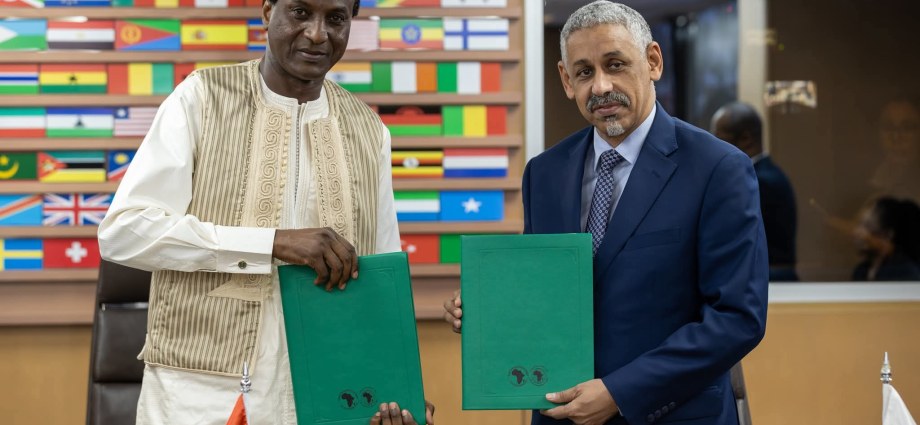Niger Secures Landmark $144.7 Million Funding from African Development Bank to Boost Electricity Access and Private Sector In a significant move to accelerate economic development and energy security, the African Development Bank (AfDB) has approved a substantial financing package of approximately 89 billion FCFA (equivalent to $144.7 million USD) for the Republic of Niger. The landmark agreement, formalized on Wednesday, October 1st, in Abidjan, signals a major commitment to addressing one of the nation’s most pressing challenges: reliable electricity access. The signing ceremony, which brought together Niger’s Prime Minister Ali Mahamane Lamine Zeine and the President of the AfDB, Sidi Ould Tah, marks a pivotal step in Niger’s journey toward sustainable development. This strategic infusion of capital is earmarked specifically for enhancing the country’s power infrastructure and bolstering the competitiveness of its private sector—two pillars deemed essential for long-term prosperity and poverty reduction. A Deep Dive into the Funding and Its Strategic Objectives So, what exactly will this nearly 90-billion FCFA investment achieve for the people and economy of Niger? The funds, sourced from the African Development Fund—the AfDB’s concessional lending window—are allocated with clear, measurable targets. The primary ambition is to dramatically increase the national electricity access rate from its current level of 22.5% to 30% by the year 2026. This is not just a marginal improvement; for hundreds of thousands of Nigeriens, this represents a fundamental shift in quality of life, educational opportunities, and economic potential. But the vision extends beyond the immediate five-year horizon. The program lays the groundwork for a sustainable energy future by planning to develop 240 megawatts (MW) of solar power capacity by 2030. This ambitious renewable energy target underscores a strategic pivot towards harnessing Niger’s abundant sunlight, reducing dependency on volatile fossil fuels, and building a greener, more resilient energy grid. Beyond the Grid: A Holistic Approach to Economic Transformation The funding package is wisely structured to be more than just a power project. It recognizes that energy access alone is not a silver bullet. Therefore, a significant portion of the financing is dedicated to two other critical areas: 1. Support for Economic Governance Reforms: A stable and transparent economic environment is the bedrock upon which private investment is built. The AfDB funding will assist the Nigerien government in implementing key reforms to improve public financial management, enhance the business climate, and strengthen institutions. This is about building the “software” of the economy—the rules, systems, and governance—that allows the “hardware” of power lines and solar panels to function effectively. 2. Direct Support to the Nigerian Private Sector: Local businesses are the engine of job creation and innovation. The program includes targeted support mechanisms for Nigerien entrepreneurs and enterprises. This could take the form of access to credit, technical assistance, capacity-building programs, and initiatives to link local businesses to regional and global value chains. By empowering the private sector, the AfDB aims to create a virtuous cycle where reliable electricity enables business growth, which in turn drives greater demand for and investment in energy infrastructure. The Ripple Effects: Why This Investment Matters for Everyday Nigeriens For the average citizen in Niamey or a rural village, these macro-level figures can feel abstract. But the real-world implications are profound. Imagine a small-scale tailor who can now run an electric sewing machine into the evening, doubling her daily output. Consider a rural health clinic that can reliably refrigerate vaccines and power medical equipment. Envision students who can study after sunset, and young tech entrepreneurs who can incubate their ideas with a stable internet connection. This is the transformative power of electricity. It is the difference between subsistence and commerce, between isolation and connection. By raising the national access rate, the AfDB project is directly targeting the “energy poverty” that holds back so much of Niger’s human and economic potential. Navigating Challenges and Seizing the Solar Opportunity Niger, like many Sahel nations, faces a complex web of challenges, including climate vulnerability and security concerns. This investment smartly addresses one of the root causes of instability: a lack of economic opportunity. By focusing on solar energy, the project also builds climate resilience. Solar power is not only clean but also decentralized. It can be deployed in remote, off-grid communities, providing power without the need for expensive and vulnerable long-distance transmission lines. The commitment to 240 MW of solar capacity positions Niger to become a more significant player in the regional energy landscape. Could surplus power one day be exported to neighboring countries, creating a new revenue stream? This long-term potential adds a strategic dimension to the investment that goes beyond domestic consumption. A Partnership for the Future The collaboration between the government of Niger, led by Prime Minister Zeine, and the AfDB, under President Tah, reflects a shared commitment to a brighter future for the country. The signing in Abidran is not the end, but rather the beginning of a critical implementation phase. The success of this ambitious program will depend on continued strong governance, effective project management, and the active participation of the Nigerian people and private sector. In a region often highlighted for its challenges, this $144.7 million dollar vote of confidence in Niger’s future is a powerful narrative of hope and progress. It is a testament to the belief that with the right partnerships and strategic investments, nations can harness their own potential to light the way forward. This landmark financing agreement stands as one of the most significant development investments in Niger in recent years, promising to illuminate homes, power businesses, and energize the entire economy for years to come.
2025-10-02

